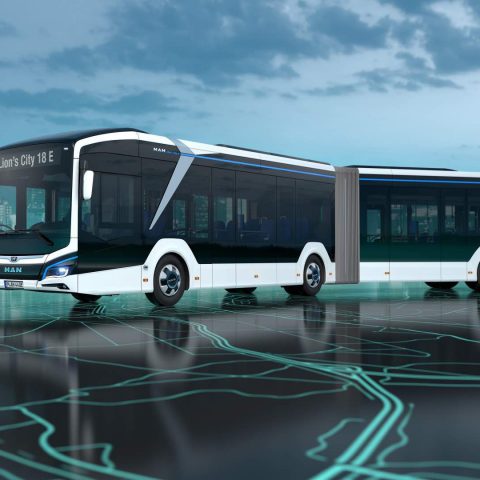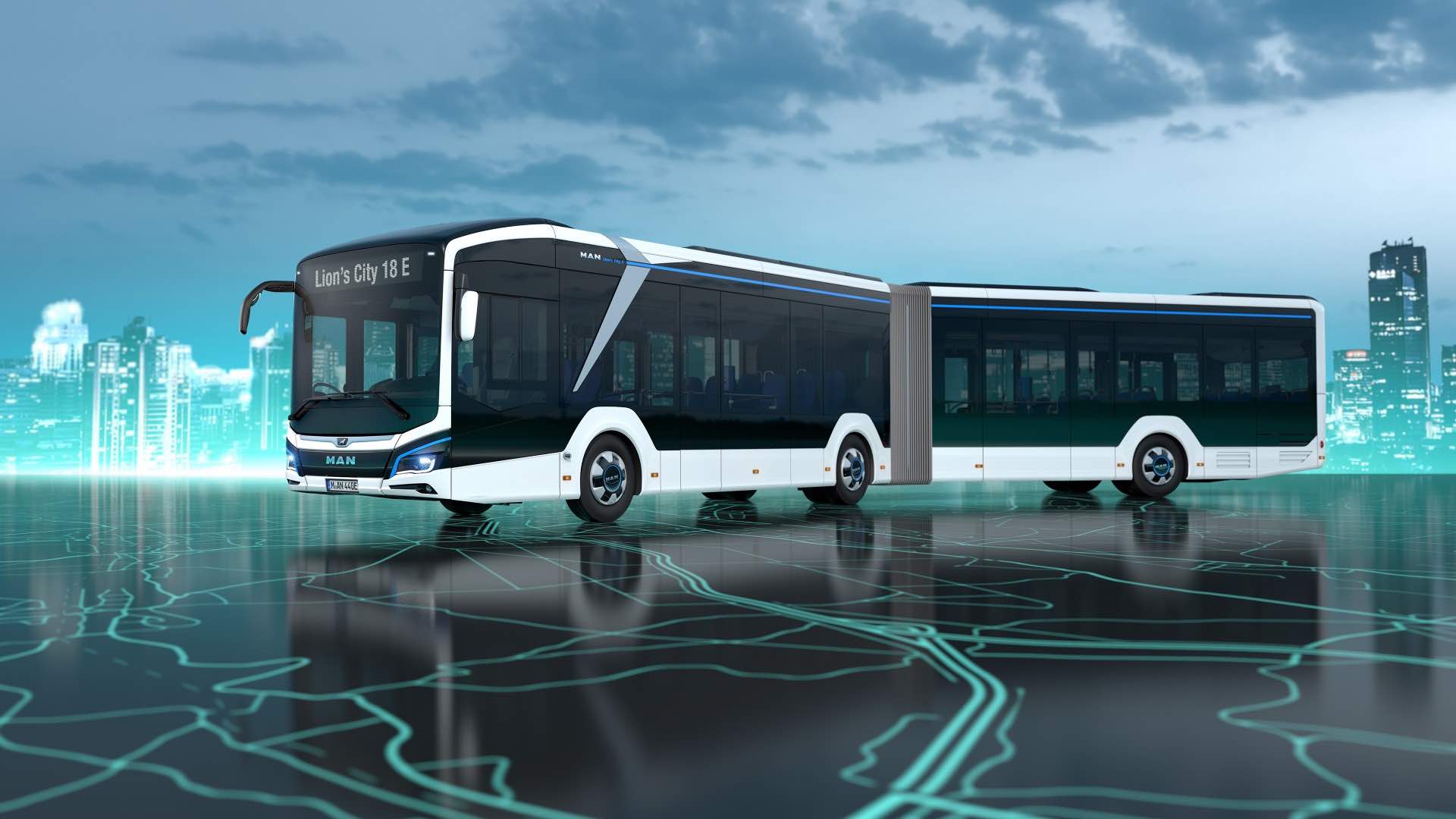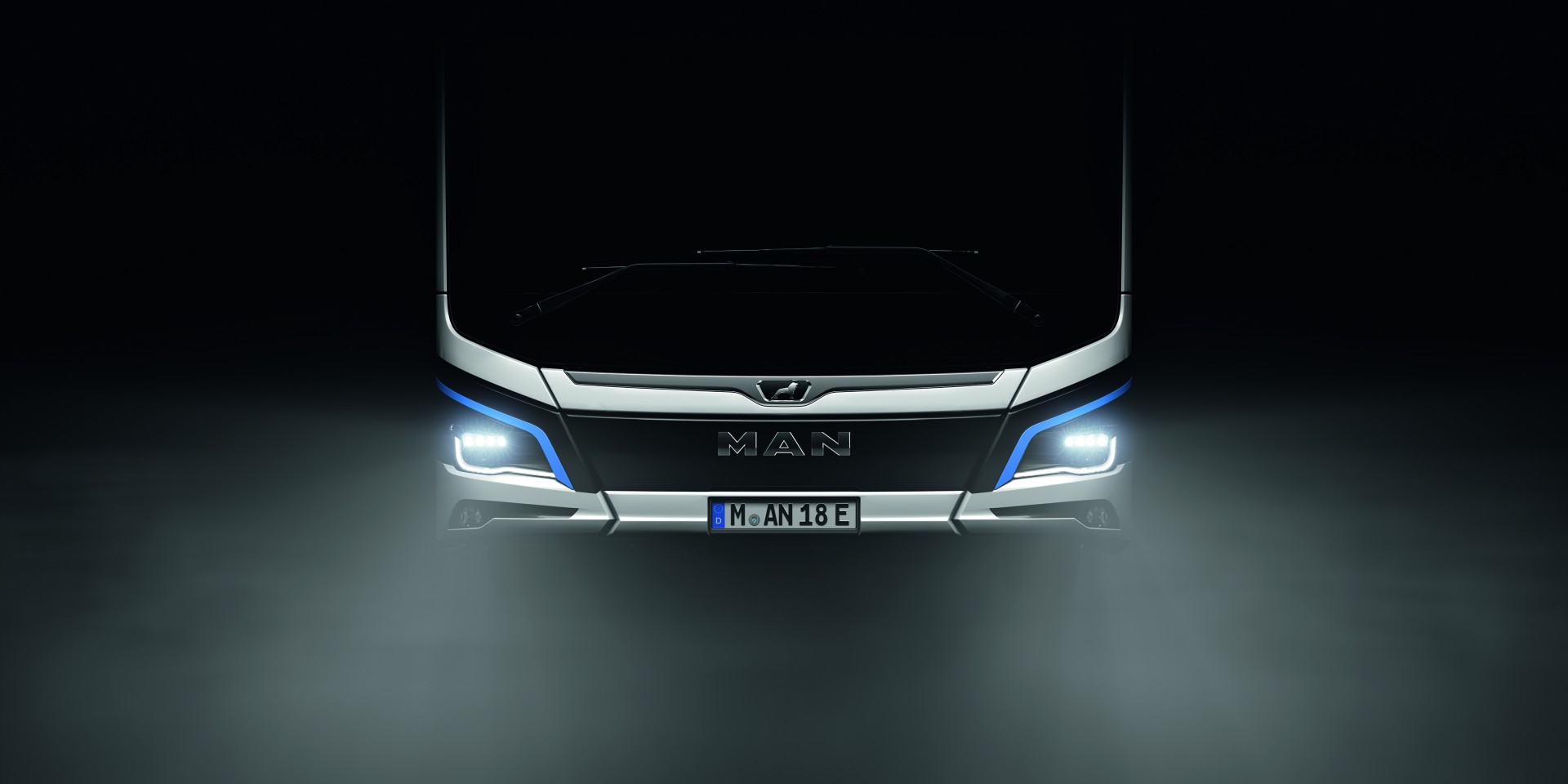MAN Lion’s City 18 E, series production in 2021. With 640 kWh battery
The MAN Lion’s City 18 E is on the launching pad. Sales of the articulated electric bus by MAN started back in April 2020. Main features: up to 120 passengers on board (at full capacity), two electric central motors, a stated electric bus range of 200 km (and up to 270 km in favourable conditions) […]

The MAN Lion’s City 18 E is on the launching pad. Sales of the articulated electric bus by MAN started back in April 2020. Main features: up to 120 passengers on board (at full capacity), two electric central motors, a stated electric bus range of 200 km (and up to 270 km in favourable conditions) thanks to a – so far unmatched – capacity of 640 kWh.
The first demo buses will be premièred on the streets of Barcelona and Cologne in the second half of 2020.
The first mass-produced MAN Lion’s City E 12-metre solo-version buses are set to be delivered to customers in the fourth quarter of 2020. The fully electric Lion’s City E in the articulated bus version will follow approximately six months later, and should go into series production in the first half of 2021.

MAN Lion’s City 18 E, demo fleet in two cities
In December 2019, in Hamburg, MAN Truck & Bus delivered the first two 12-metre electric buses to the transport operators Hamburger Hochbahn and Verkehrsbetriebe Hamburg-Holstein for everyday use in the Hanseatic port city. VHH has also landed the first commercial order for the electric bus by MAN, with a contract for 17 vehicles.
13 demo vehicles (with 12-meter length) will be deployed in practice as part of the e-mobility roadmap. Over the course of 2020, the demo fleet of 15 electric buses in total will then be running customers’ services in five European countries (Germany, Spain, Luxembourg, Belgium, France).
As part of this testing programme, MAN will also hand over the 18-metre electric bus MAN Lion’s City 18 E to the transport operators Kölner Verkehrs-Betriebe AG (KVB) in Cologne and Transports Metropolitans de Barcelona (TMB) in Spain, in order to conduct the planned practical testing there, too.
Up to 480 kW for the articulated electric bus MAN Lion’s City 18 E
In the MAN Lion’s City 18 E, the fully electric driveline (made of two central motors on the second and third axles, developed within the Traton group) produces between 320 kW and a maximum of 480 kW. The energy for this comes from the modular batteries with 640 kWh of installed capacity. MAN relies on the fully developed lithium-ion (NMC) battery cell technology from the Group’s modular kit. The batteries have an intelligent temperature management system that has been optimised for use in city buses. The MAN Lion’s City 18 E is stated as having a range of 200 km (and up to 270 km in favourable conditions) over the entire service life of the batteries.
640 kWh of battery on board
There are a total of eight battery packs, which are located on the roof of the articulated bus. Batteries are located away from the rear of the vehicle, which is an area at higher risk of a collision. The batteries are charged at the depot via a Combined Charging System plug (CCS). With an average charging power of 100 kW and a maximum power of up to 150 kW, the articulated bus can be fully charged in less than four hours. No quick-charging via pantograph is available.

Two driven axles on the MAN Lion’s City 18 E
The two driven axles of the MAN Lion’s City 18 E are electronically synchronised and also help to improve the handling of the articulated bus as they boost driving stability and, in turn, the level of safety. What’s more, the electric articulated bus comes with an anti-jackknifing control system and kink angle control system, which further improve driving stability. Critical jackknifing situations can thus be prevented in advance as the drive torque can be selectively distributed to the two driven axles in line with the specific situation at hand. Moreover, the two driven axles increase the maximum energy recovered under braking.
“Measuring 18 metres long, the MAN Lion’s City 18 E is the perfect choice for any company looking for an all-electric city bus, i.e. one that does not produce any emissions locally, with space for many passengers,” underlines Rudi Kuchta, Head of Business Unit Bus at MAN Truck & Bus.







